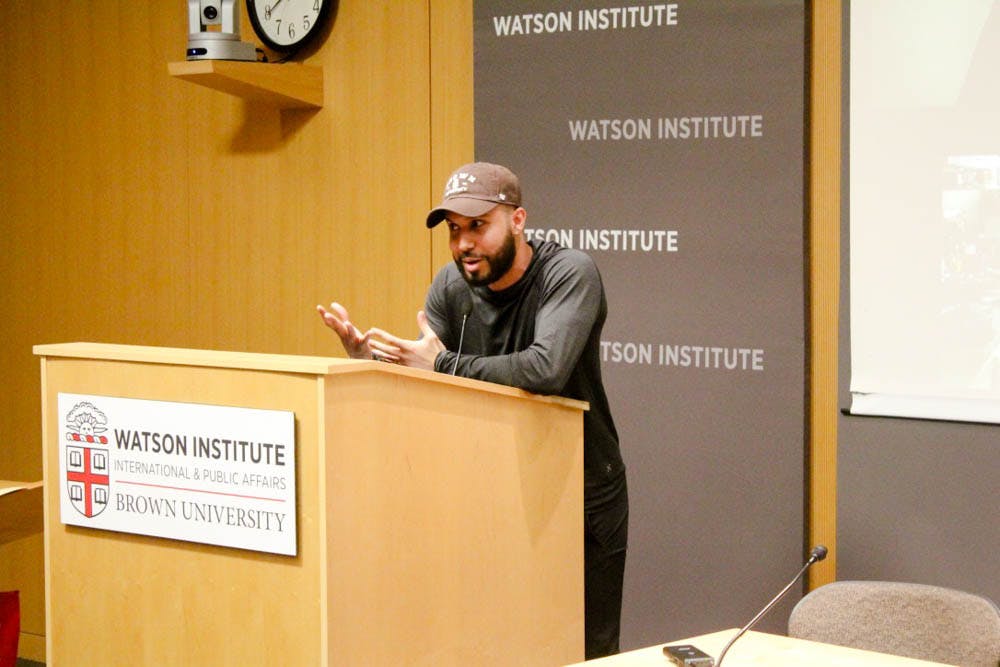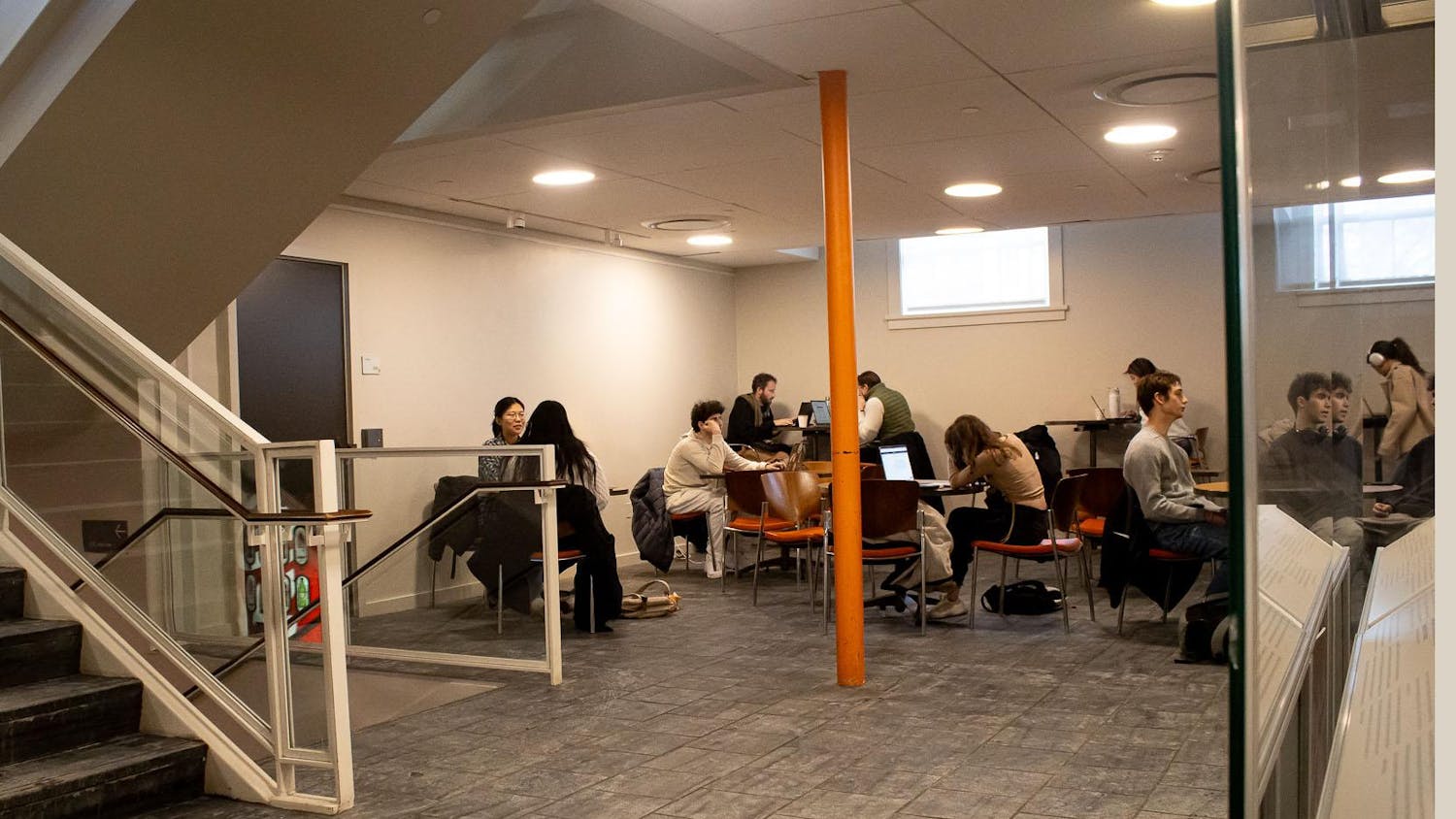Social entrepreneur Mohamed Malim spoke at the Watson Institute for International and Public Affairs Monday afternoon at the behest of the Center for Latin America and Caribbean Studies about how he strives to reframe the refugee narrative in the United States by spreading social awareness through fashion and storytelling.
In February 2017, Malim founded Dream Refugee, a 501(c)(3) nonprofit organization that aspires to combat racism, xenophobia and stereotypes often encountered by refugees. To foster a connection between refugees and the greater American public, Dream Refugee digitally shares success stories that are often swept under the rug. Otherwise, “we don’t hear a lot of success stories,” Malim told The Herald. “We don’t hear (how) refugees come to America, contribute a lot financially, bring values and contribute diversity.” Each story is accompanied by a photographed portrait. Malim was inspired to create the organization during his junior year of college after President Trump spoke at St. Cloud State University in Minnesota where he insulted “the whole Somalian refugee community with negative stereotypes (and) negative rhetorics.”
Malim founded Epimonia, a for-profit fashion company based in Minneapolis in December 2017. Epimonia directs 50 percent of its earnings toward supporting refugees in obtaining citizenship and scholarships. “What you wear is what you support,” Malim said in his talk.
All Epimonia products are made by refugees. The company uses life jackets worn by refugees to create bracelets that serve as symbols of solidarity.
“There are over 70 million refugees around the world who are currently displaced,” Malim said. As a former refugee from Kenya, Malim added, “I was one of those kids.”
“The civil war in Somalia, which seems like a never-ending war, has been going on for about 25-plus years,” he said. “Due to the civil war, I wasn’t able to see the homeland of my parents. Fearing their safety, my parents fled … landing in what became my birthplace, Kenya.” Malim and his family spent three and a half years in a refugee camp before coming to the United States.
Malim described growing up as a Somalian-American and “navigating stereotypes,” as well as the “culture shock” of adjusting to a predominantly white high school in Minnesota. When Malim struggled, he emphasized that he would always remember his “mother’s resilience when the odds were against her,” he said. “Even though it wasn’t great at first, I knew I couldn’t let her down. I had to make her dreams come true.”
Malim later attended the University of St. Thomas in St. Paul, Minnesota, where he studied business management and entrepreneurship in the Opus College of Business on a full scholarship. He also ran varsity track and field. Malim credits his time at the University of St. Thomas as an integral factor in his success with entrepreneurial pursuits. “Having their support system helping me guide my entrepreneurship journey was huge.” Malim said. “When I started Dream Refugee and Epimonia, they helped me participate in business competitions, helped me connect with journalists … to get my story out there.”
Malim encouraged University students to reach out to refugee communities in any way possible. “I want college students to be involved in the refugee crisis,” Malim said. Students “can have an impact whether it’s taking time off, visiting at a local refugee non-profit organization … (or) being empathetic. It might be a small impact, but (it’s) a long-lasting impact in the eyes of refugees.”
Clarification: This article was updated at 10:33 pm to clarify that the Center for Latin America and Caribbean Studies within the Watson Institute brought Malim to speak.





